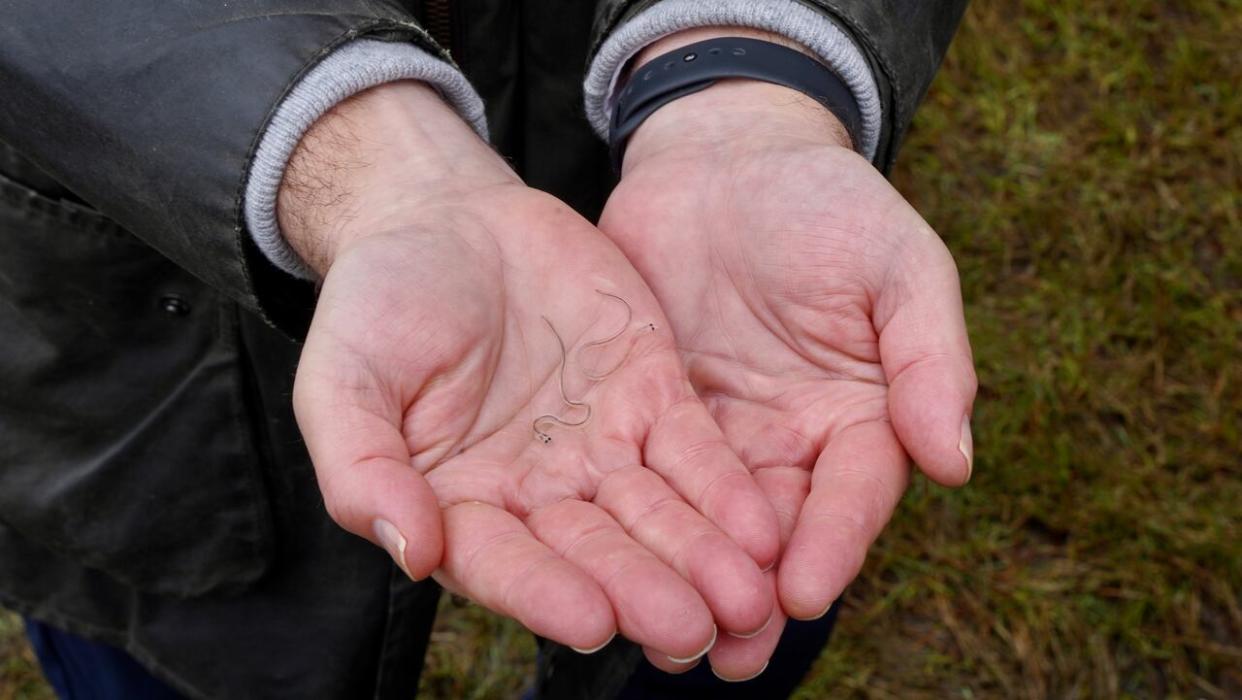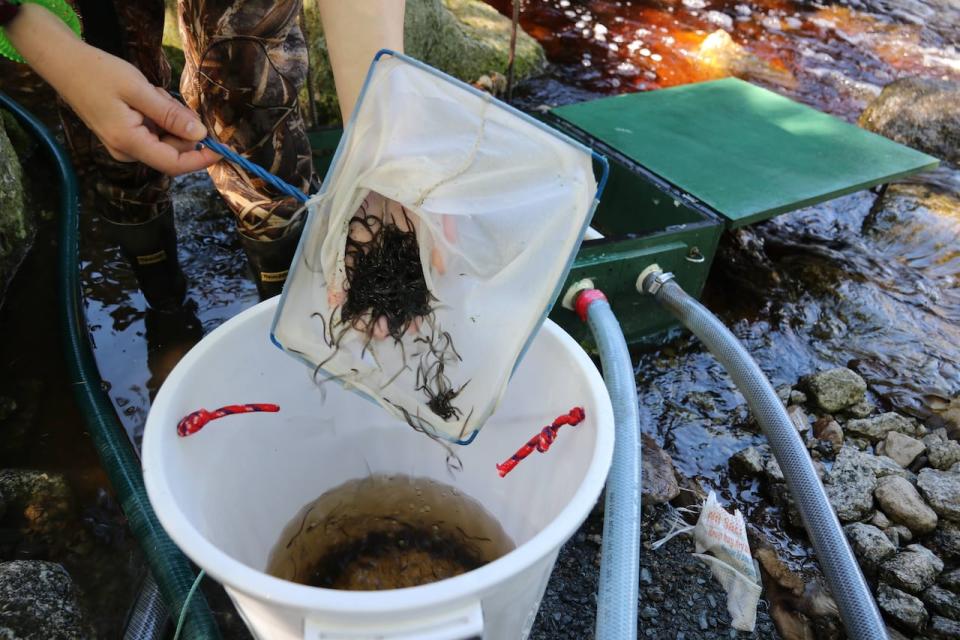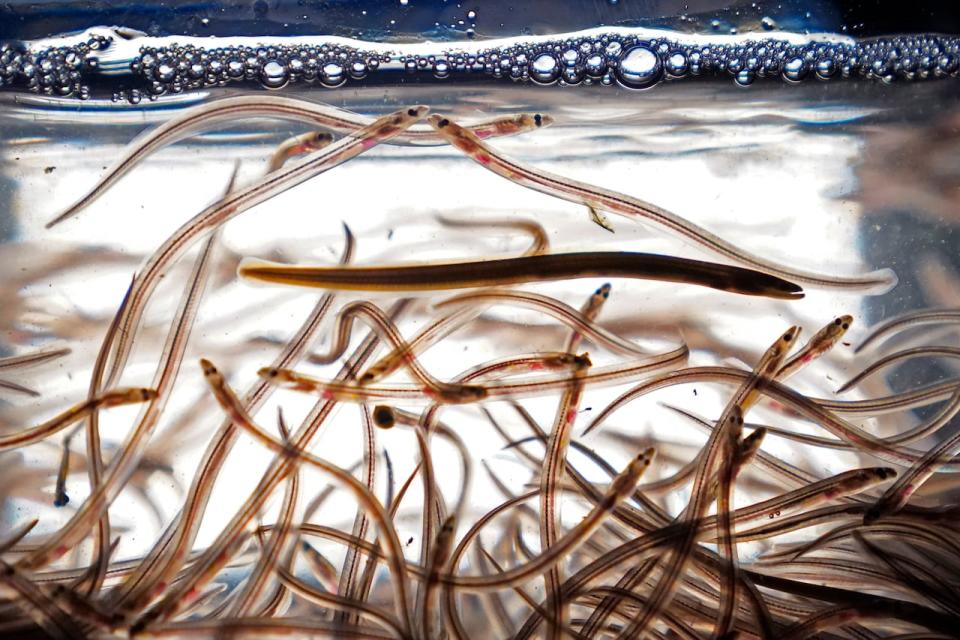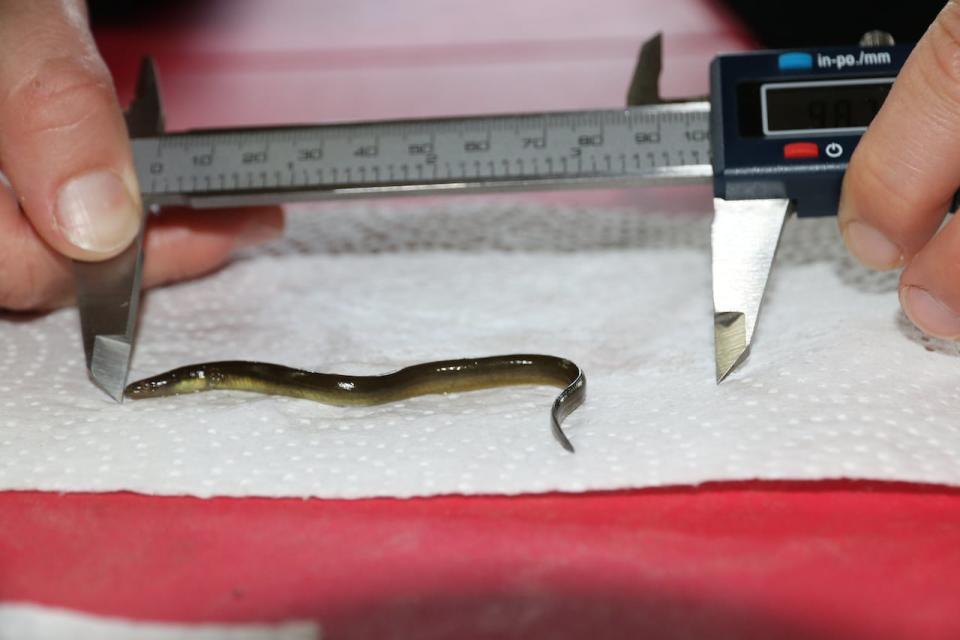Commercial licence holder sues Indigenous fishers over lucrative N.B. elver fishery

Another legal battle is brewing between a licensed commercial eel fisher and First Nations fishers.
Mary Ann Holland, who has been fishing elvers in southwestern New Brunswick since 1988, is suing six Wolastoqey First Nations, their respective chiefs and more than 100 other individuals.
In her statement of claim, Holland accuses the Indigenous groups and individuals of poaching elvers in waterways where she has exclusive rights to fish. She said Indigenous fishers intimidated and assaulted her fishers, and stole her equipment and catch, thereby deliberately interfering with her "contractual and economic interests."
Holland is suing for general and punitive damages, including loss of wages and legal costs, and is also asking for an injunction, although the claim doesn't specify any terms.
None of the accusations have been tested in court, and no date has been set to hear the case.
Lawyer Barry Morrison, who filed the lawsuit for Holland in March, declined comment when reached by phone on Friday.

A researcher scoops elvers into a bucket in 2019 as part of project on the East River near Chester, N.S. (Richard Cuthbertson/CBC)
The communications co-ordinator for the Wolastoqey Nation in New Brunswick was asked for comment but has not yet provided any.
Tensions in New Brunsick and Nova Scotia have been brewing for the last few years as Indigenous fishers have tried to get a bigger piece of the lucrative elver industry.
The baby eels are netted each spring as they migrate into Nova Scotia and New Brunswick rivers. They're shipped live to Asia where they're grown to adulthood for food.
Before the fishery was closed in 2023, the average price was $4,400 a kilogram. In 2022, they fetched $5,000.
Fisheries and Oceans Minister Diane Lebouthillier did not allow the elver fishery to open in 2024 on the grounds the department could not safely manage the fishery. For years it has seen what the department calls rampant poaching, violence and intimidation.
This is the third shutdown in five years — affecting the livelihoods of more than 1,100 people.

Tiny young eels known as elvers are sent to Asia, where they're grown to adulthood and eaten. (Robert F. Bukaty/Associated Press)
In 2022, Holland was granted a court injunction to stop Indigenous fishers from poaching on her territory.
In her most recent statement of claim, Holland said she was hopeful the 2023 season would be a more peaceful one, but she said the problems continued and escalated.
"Certain of the disguised unauthorized fishers, when approached by the Plaintiffs, arrogantly, loudly, in foul language claimed they were exercising their Aboriginal right to fish what, when, where and how they chose. The number of unauthorized fishers increased quickly," according to the claim.
In a statement of defence, Nicholas Paul said the plaintiffs are just trying to "maintain a stranglehold on premier elver fishing locations in New Brunswick."
He said "elver fishing was far more profitable in waters close to the ocean. As elvers move upstream and feed, they become more difficult to harvest in an effective manner.
Paul argues that Holland's licence "does not confer exclusive fishing rights to the exclusion of the Defendant's aboriginal and treaty rights."

A researcher with the group Coastal Action measures an elver caught in the East River near Chester in 2019. (Richard Cuthbertson/CBC)
Holland on the other hand, argued that Indigenous fishing rights don't extend to elvers.
"Elver fishing was never a traditional fishery of any First Nation because elvers were too small and slippery (a) for use as a food or for social or for ceremonial purposes or for trade and (b) because the gear needed to capture them had not been invented until the 20th century. Elvers are virtually impossible to catch by hand."
The document goes on to say the defendants' traditional territory "for fishing any species of fish" was along the St. John River Valley, "not in the waters licensed to Holland."

